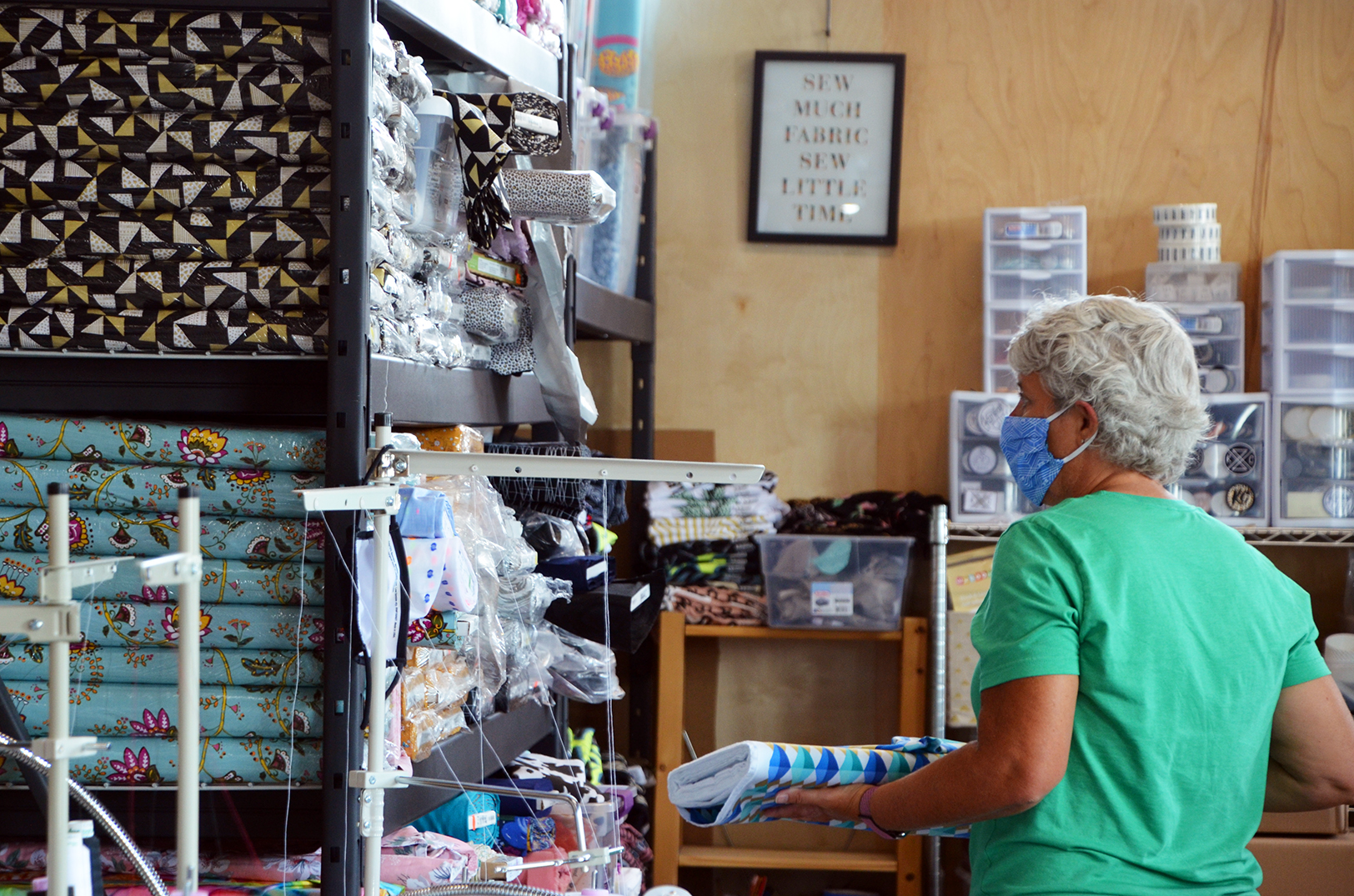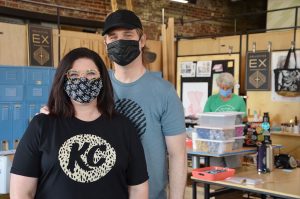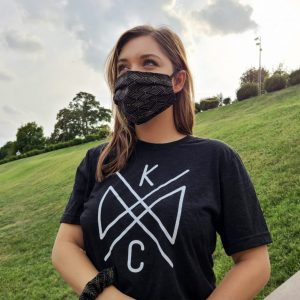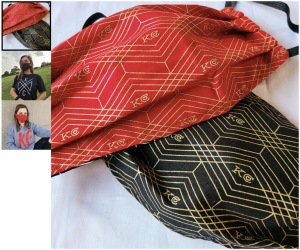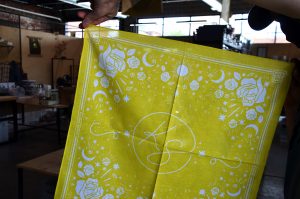Editor’s note: The following is the third in a series of stories about Kansas City fashion companies putting their own creative spin on the often-utilitarian face mask.
As demand for face masks surged this spring, a massive and sustained influx of traffic and orders at SewKC crashed the Crossroads creatives’ online retail engine — forcing the team to handwrite orders for months until the site could be fixed, said Michele Dawbarn.
“You hear about things like that happening, but we never thought it was going to be an issue for us,” said Dawbarn, who with her husband, Johnny, co-founded SewKC, a Kansas City apparel brand known for its bold geometric designs melded with KC pride sentiments.
When the duo contacted Squarespace, the platform behind their site, for help, they discovered support staff in New York City were themselves on lockdown, away from their office and couldn’t repair the site remotely, Johnny said.
“They were like, ‘What are you guys doing? The whole country is shut down!’” he recalled.
Not SewKC.
It’s studio space within Collective EX at 519 E. 18th St. had been transformed into a face mask-making machine — threaded with about two dozen sewing and support staff inside and at home locations.
Click here to read more about how the SewKC and Collective EX concepts marry ideas to passion within the Crossroads shop.
A will-timed pivot and city permission to operate as an essential business during the early days of the COVID-19 pandemic put the popular apparel brand in a unique position — and presented a path for survival running straight along 18th Street.
“Different venues of innovation and true entrepreneurialism happen when you can pivot your business at any given time — shift your business in a way that continues your ability to bring in revenue,” said Johnny. “But this was more than just changing what we sell; it was changing everything that we do on a day-to-day basis.”
“The beauty is that it also opened up a whole bunch of new channels for us to have conversations about other people’s businesses and how we can interact with them,” he added.
Click here to explore products from SewKC.
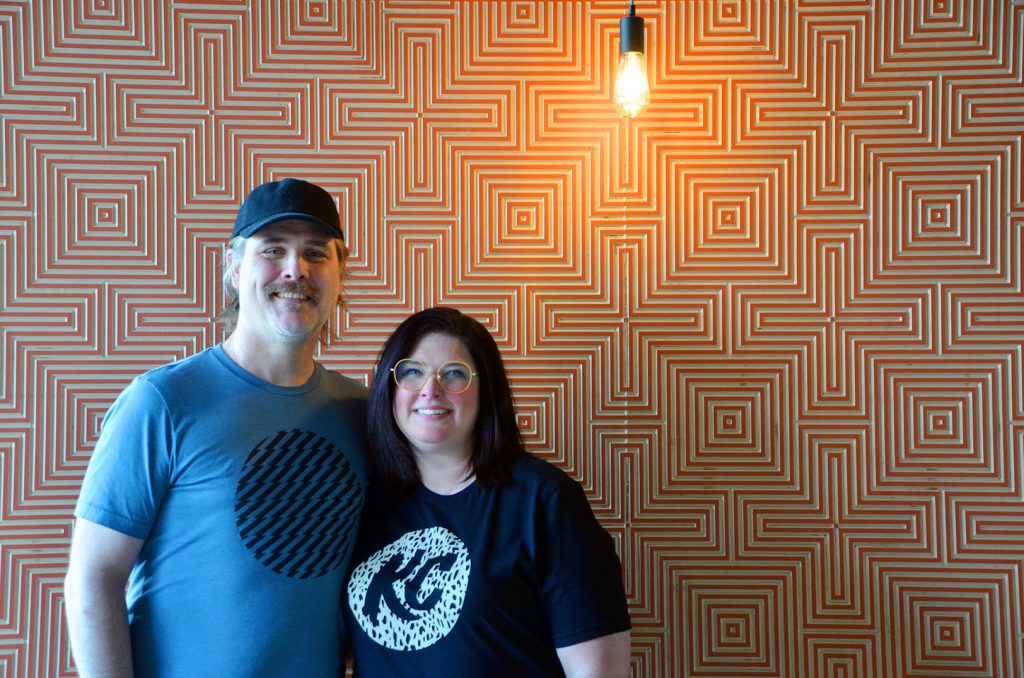
Johnny and Michele Dawbarn, SewKC
Tip of the iceburg
Confusion reigned in the first days of the pandemic, Michele recalled. The public hadn’t yet been told to wear masks, but behind the scenes, medical workers were having trouble getting Personal Protective Equipment (PPE), she said, noting hospitals received priority over doctors’ offices and other medical operations.
“One doctor was reaching out to us and saying ‘We haven’t gotten new masks in months; we’re having to share them. Is there any way you can make us a dozen masks? Like today?’” Michele said, describing the customer tip about pending Centers for Disease Control guidelines on masks and mask-making that spurred SewKC to action.
“They told us, ‘The CDC just released this to the medical professional community and it’s coming out in the news tomorrow.’ So we got a jumpstart,” she continued. ‘Everything had to be exact to the CDC standards. And we had that up and running the next day — 24 hours; we were already ready.”
With 15 years of production under their belts — experience ranging from a kids clothing line to a pop-up shop in San Francisco through Hallmark’s innovation incubator — the couple was confident, they said.
“The only scary part was ‘What if we can’t get the materials?’” Johnny said. “I literally went around to every single shop in town that had the materials we needed for our masks, and just grabbed whatever I could to allow us to fulfill orders right away. … I’m the guy who bought out every bit of elastic that was compliant to CDC specs from any store within 100 miles.”
Their gambit began to pay off immediately — thanks especially to a few viral social media posts advertising SewKC’s buy one, give one mask campaign to send donations to shelters and health care centers, he said.
“With demand being so high and inventory so limited, people were looking for masks out of need but also to cope,” Johnny said of the tumultuous time of uncertainty. “One particular post got shared and we had orders coming in from Alaska, Hawaii, Canada, the UK. It was wild.”
“But then, we were like, ‘Holy smokes! Now we have to make all of these,’’ he continued. “And since we were doing ‘buy one, give one,’ we had twice as many to produce.”
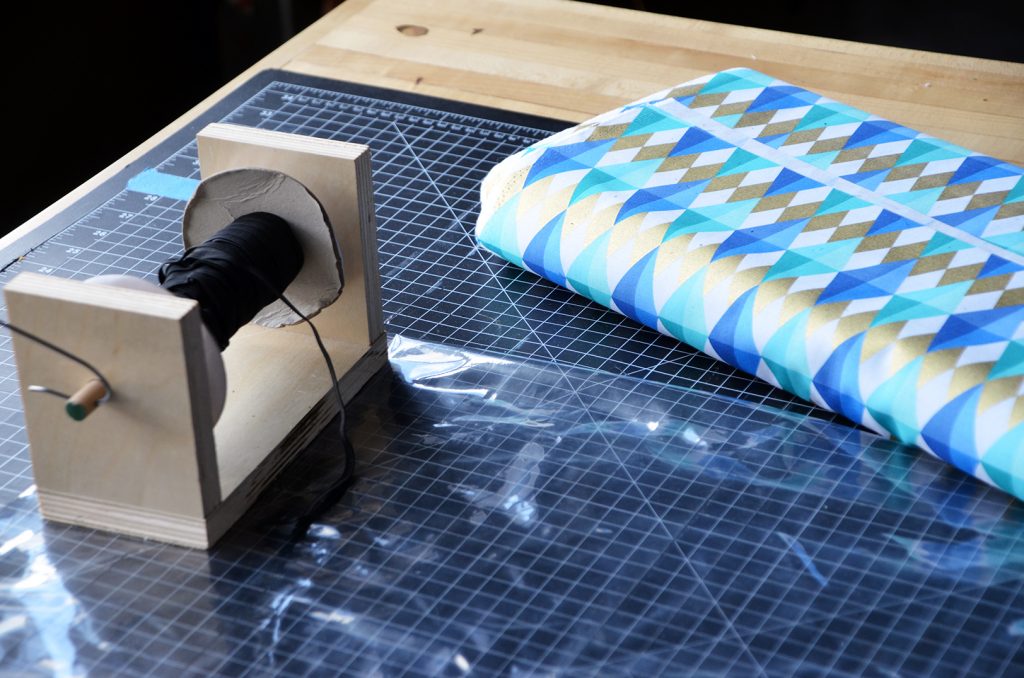
SewKC
Higher fashion by design
In-house talent and high-quality equipment upgrades helped SewKC cut its production time per mask from eight minutes to three minutes, Johnny said, while the team also worked to boost fulfilment and shipping speeds.
“It was interesting to get that jump start,” he said. “The feedback was, ‘You guys are the only ones fulfilling orders right now. Everyone else is saying it’ll be four to six weeks if not longer to get your masks, or they’re just canceling orders.’”
But sales also were being driven by SewKC’s high-end designs — even if that wasn’t the original intention, Johnny said.
“We never claimed these masks were anything close to an N95 or any other hot masks of the time, but we said they were an alternative to having nothing,” he detailed. “But that said, we made the decision early on that when we go to the fabric store, there’s no reason why we can’t be thoughtful as we pick out the styles, just like we would for our apparel or hats.”
“We want people to wear what they want to wear — not just wear them because they’re forced and this is all that’s available,” Johnny continued. “And people eventually wanted something appealing beyond just necessity.”
“And they wanted to coordinate,” Michelle added.
Because of SewKC’s existing industry connections, the Dawbarns were able to get enough fabric at cost from a New York seller to build a line with coordinating patterns, she said.
“Maybe it sounds vain, but if it isn’t any extra work on our part to say, ‘Look at this fabric versus that fabric; which one is easier to fit into our brand, our colors and combinations, our strategy?’ Why wouldn’t we take that step?” Johnny added.
Giving by the yard
Among those noticing SewKC’s high-quality, mid-pandemic work: fashion designer Kendra Scott, who donated some of her signature scarves to be made into face masks.
“It was a very organic development,” Johnny said. “We cut them up into masks, and then offered them to the public as a surprise if you chose the category that meant you didn’t care which design you got. We put those out in people’s packages that allowed it to be a little bit of fun unexpectedness in a time of less-pleasant surprises.”
“It was kind of like a prize in the cereal box kind of thing,” he added.
The couple also realized the buy one, give one face mask effort could be applied to other areas of need in Kansas City, they said. (The campaign already has sent thousands of masks to Children’s Mercy Hospital and other recipients across the metro and beyond.)
“We started thinking about what other epidemics are out there year-round — not COVID, but problems affecting our community?” Johnny said.
Uzazi Village provided another opportunity for support, he said, describing the Troost Avenue nonprofit’s mission to improve maternal and infant health among Kansas City’s urban African-American community. SewKC adapted its buy one, give one model to send bibs and burp clothes — items mothers need but aren’t donated as frequently as other items like diapers and wipes — to the effort.
“These are hand-sewn bibs and burp cloths, locally printed Kansas City patterns, and for every one that’s sold, we’re donating an equal number to the people who Uzazi Village helps — primarily women of color or just women who are really struggling with their pregnancies, either prenatal or postnatal,” Johnny said.
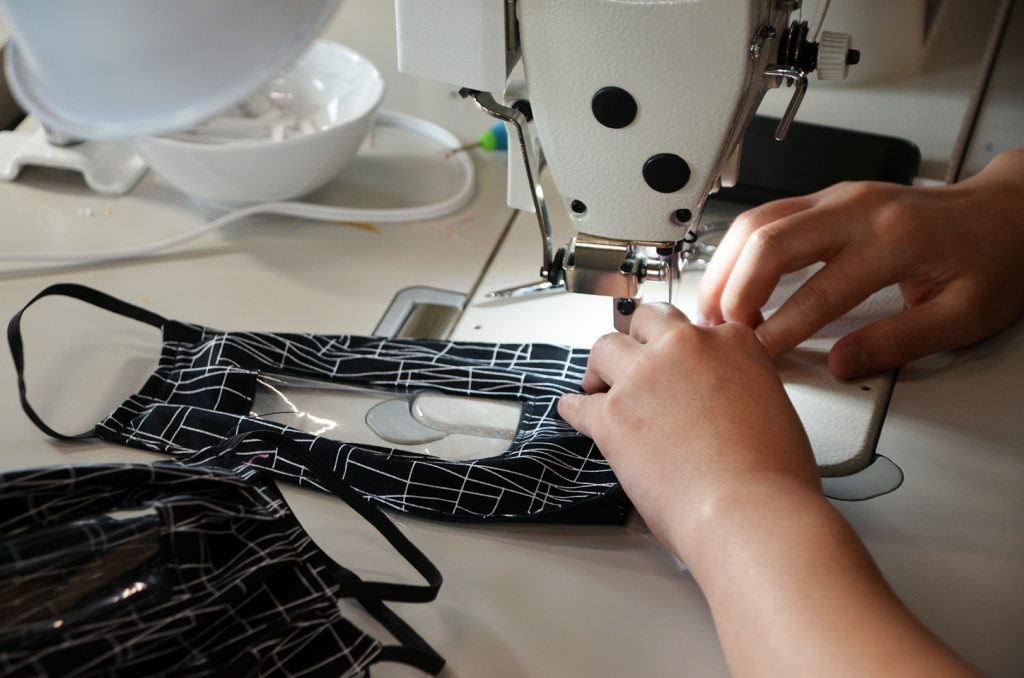
SewKC
A saving grace
The Dawbarns credit much of their ability to pivot on longstanding relationships with suppliers — from local craft stores to fabric wholesalers — and to a team of seamstresses and staff members who were eager to do more that sit at home waiting for the shutdown to be lifted, Johnny said.
“We had people either sewing, cutting material or helping with fulfillment. These were all people who were out of work. There were a lot of service people who had their hours cut or who had totally lost their jobs,” he said. “So we tried to employ as many people as possible and pay them decently.”
“We had the resources in place, but we also had some really great people step up,” Michele added.
Such teamwork allowed SewKC to overcome the temporary closings of its retail partners during the shutdown, as well as the drop-off of custom production work for sister operation at Collective EX, they said.
“We weren’t able to rely on walk-in retail at all,” Johnny said, turning to gesture at stacks of fabric and team sewing masks in the studio. “This has really been a saving grace for us. It really made me look back at where we’ve been and appreciate that it allowed us to pivot.”
This story is possible thanks to support from the Ewing Marion Kauffman Foundation, a private, nonpartisan foundation that works together with communities in education and entrepreneurship to create uncommon solutions and empower people to shape their futures and be successful.
For more information, visit www.kauffman.org and connect at www.twitter.com/kauffmanfdn and www.facebook.com/kauffmanfdn




